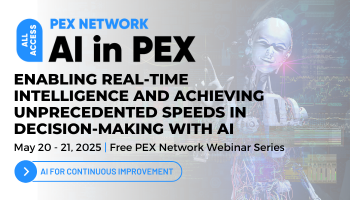Process mining and the growing role of generative AI
Generative AI offers game-changing possibilities for enhancing process mining. Ricardo Henriques, transformation leader and business automation professor, discusses generative AI’s role in modern process mining
Add bookmark
Process mining defines techniques relating to the fields of data science and process management to support the analysis of operational processes based on event logs. Its aim is to turn event data into insights and actions. Artificial intelligence (AI) is increasingly being applied to process mining to automate collection, discovery, visualization and monitoring of process data.
More recent AI advancements – specifically generative AI – are adding significant, new considerations into the process mining equation. With its novel ability to understand context, create content and learn from huge amounts of data, generative AI offers game-changing possibilities for enhancing process mining by providing deeper insights and predictive capabilities.
Ricardo Henriques, transformation leader and business automation professor at Católica Lisbon School of Business and Economics, spoke to PEX Network about generative AI’s role in modern process mining. Henriques will be speaking at All Access: Process Mining and Process Intelligence, taking place March 5-6.
PEX Network: What new process mining/intelligence capabilities does generative AI offer?
 Ricardo Henriques: There are several different applications if we combine process mining/intelligence with generative AI. The traditional process analytics capability provided by process mining describe the process execution that helps monitoring and improving initiatives. However, that is only the vision based on structured data of operational systems. Combining process mining and generative AI improves analytics capacities as we work with structured and unstructured data.
Ricardo Henriques: There are several different applications if we combine process mining/intelligence with generative AI. The traditional process analytics capability provided by process mining describe the process execution that helps monitoring and improving initiatives. However, that is only the vision based on structured data of operational systems. Combining process mining and generative AI improves analytics capacities as we work with structured and unstructured data.
Generative AI, combined with process mining techniques, can provide more detailed answers to process-related questions by using a deeper lens over the process vision. For example: CRM system structured data helps us to understand a service request flow, but if we want to understand the reason for a customer cancelling a service, generative AI boosts analysis of unstructured data in the CRM system that could help us in the root cause analysis.
READ: 9 process mining obstacles and how to overcome them
PEX Network: What factors are key to successfully applying generative AI to process mining?
RH: Having a clear definition about the role of generative AI and process mining is key and will mitigate the risk of overlap. To capture the maximum value, we also need to improve data integration capabilities using a reference architecture and provide playground conditions to the business users. The main idea is to have skilled users using the right data and the right toolset solving the business challenges.
PEX Network: What are the biggest challenges/considerations in applying generative AI to process mining?
RH: First, there is a challenge related with creativity as we need to find the most valuable use cases which requires new ways of thinking and having the right knowledge about generative AI and process mining. Data quality is also a challenge and impacts the outputs (sometimes generative AI models hallucinate with poor data quality). Lastly, each business case should consider volumes and manage financial impacts of using generative AI capabilities that could not have the best return of investment.
READ: 3 ways process mining accelerates digital transformation
PEX Network: How will generative AI change the process mining landscape in the next five years?
RH: The future of process mining/intelligence will be impacted greatly by generative AI, changing not only process analytics but also process management. As a suggestive technology, we will see process flows generated by prompts, human-like ergonomic interactions exploring process-related issues and a much more powerful lens providing insights about the process execution which could be used to take real-time decisions. This landscape will support a new operational intelligence model where companies have the best conditions to be relevant and efficient.
READ: 2024 generative AI and intelligent automation trends report
All Access: AI in PEX is 2025

All Access: AI in PEX 2025 is designed to address these challenges and empower organizations to successfully integrate AI into their process improvement initiatives. The content series will bring together industry experts, thought leaders, and practitioners to share insights, best practices, and real-world case studies.
Register Now





















